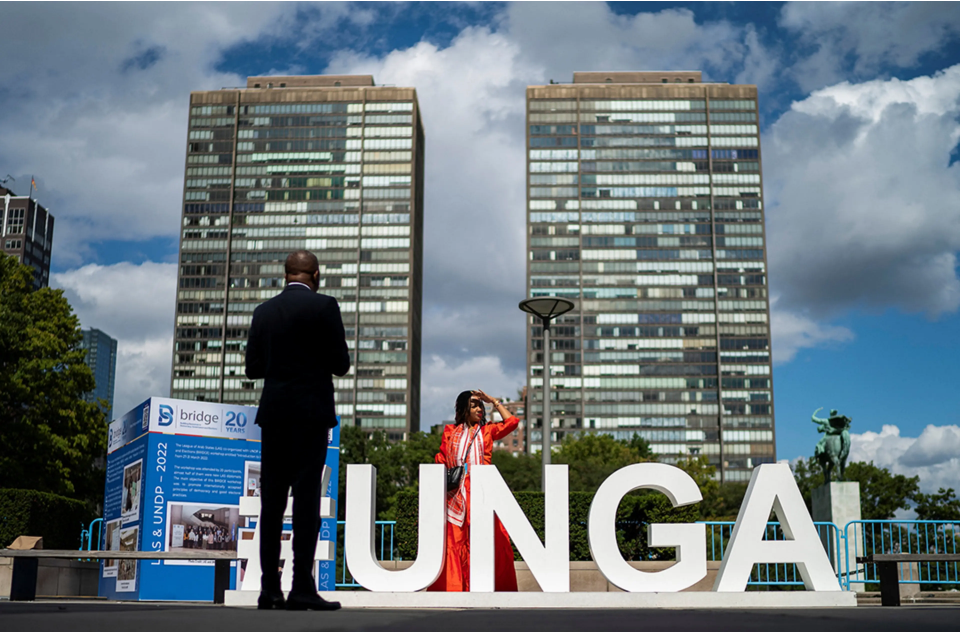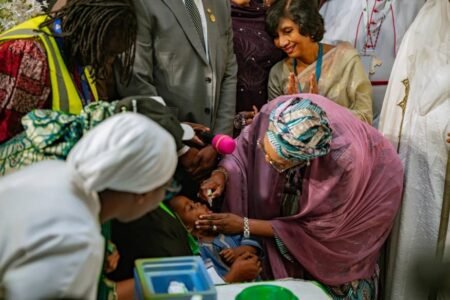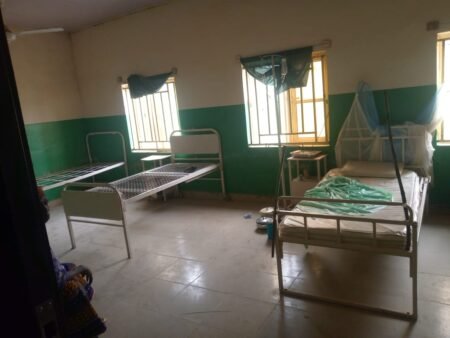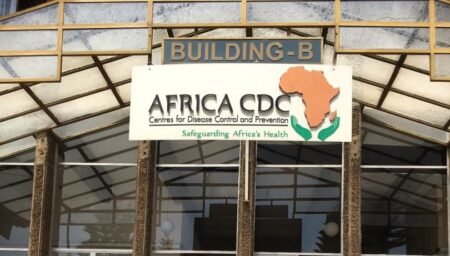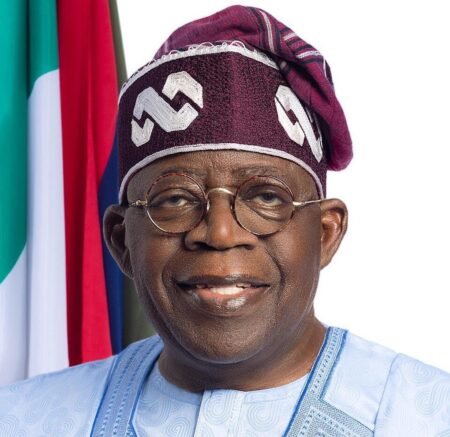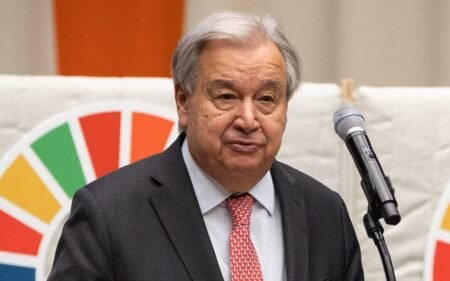African leaders and development experts have faulted decades of foreign aid-driven development on the continent, insisting that Africa must chart its own path by investing in homegrown innovation and solutions.
The call was made at a panel session titled “African-led Innovation: Shaping Sustainable Futures with or without Aid” held on the sidelines of the 80th United Nations General Assembly (UNGA) in New York.
African countries have long depended on foreign assistance to support its health sector, infrastructure, and social programmes.
In January, the US government announced sweeping cuts to foreign aid, suspending significant portions of funding through USAID and rescinding $7.9 billion commitments under the Rescissions Act of 2025.
Speaking during the panel session, Chernor Bah, Sierra Leone’s Minister of Information and Civic Education, said aid donation had for decades shaped African systems but left little room for true ownership.
“For decades, foreign aid has shaped health, innovation, and development in Africa but often without African ownership at the centre. In many ways, this created systems that were never truly ours,” Mr Bah said.

He said that Africans have always innovated out of necessity and should now reclaim the narrative.
Mr Bah noted that this is a new era of designing African future, where African ideas and creativity lead the way.
“How we collaborate across government, the private sector, civil society, and communities will determine whether we succeed in reclaiming our sovereignty,” he added.
Public-private collaboration in health
The founder of HealthCap Africa, Ola Brown, said governments and private capital must work as co-investors to build sustainable innovation.
Ms Brown noted that Africa’s challenge is different because governments face capital constraints.
“When you look at the US, the Internet itself began as a DARPA project at the Pentagon. Around 75 per cent of new drugs and molecules come from government-funded research. Even SpaceX survived its first years because of government contracts,” she explained.
Citing examples, Ms Brown noted that RapidDeploy, an African emergency services company, now operates in 20 US states, while InstaDeep, an AI drug-discovery firm, was acquired for $1 billion by a German company.
“When we invest in healthcare innovation in Africa, we don’t just create a healthier continent, we create a healthier world,” she said.
Speaking on innovation to be community-driven, Michael Holscher, President of Population Services International (PSI) Global, stressed that communities, not projects, determine sustainability.
Mr Holscher stressed that innovation has to be seen through the ecosystem of all the different players, while noting that one of the most critical is the community itself.
“For instance, a woman in the marketplace or a man in the village will be a determining factor whether a programme is sustainable,” he said.
“Our projects are finite; they have timelines. But beyond short-term results, the question always is: when we leave, what happens? True sustainability rests in the ownership of stakeholders. Communities must be carried along,” he said.
Evidence and inclusivity
The Co-President of the Population Council, Jim Sailer, invited long-time researcher Judith Bruce to respond on how evidence can support locally led change.
Ms Bruce warned against treating community as a homogenous category that excludes women and girls.
She called for strengthening what she described as ‘female infrastructure’ and said data must reveal who is missing, not just who is visible.
“Every study showing impact should begin, not end, with the question: who is included here, and who is not? Large populations remain invisible such as girls aged 10 to 14 in high child-marriage districts. If we don’t name them, we can’t design for them,” she added.
READ ALSO: UNGA Walkout on Israeli PM: Seven times delegates walked out to protest controversial leaders
Digital innovation for health
Jean Nsengimana, Chief Digital Health Advisor at the Africa CDC, said the continent must make health technology as common as mobile money.
“When we look at digital innovation in health, the question is: how do we replicate the success of M-PESA? Financial inclusion was revolutionised because mobile wallets reached the excluded. We need the same leap in health tech,” Mr Nsengimana said.
He explained that pieces of the digital health puzzle already exist including connectivity, power, data centres, electronic records, but are scattered.
Mr Nsengimana added that Africa CDC has launched a Health Tech Marketplace to showcase 24 homegrown innovators.
“The bottom line is Africa has the solutions within. If foreign aid comes, it’s welcome. But even without it, we must and can move forward,” he said.
Read the full article here






